When modern languages are in the news, Reading Reacts. In a regular feature, we’ll invite members of the Reading community to comment  on news and current events, sharing their insights about what is happening in the world beyond the university. To inaugurate the Reading Reacts series, we’ve invited Dr Daniela La Penna, an Associate Professor of Italian Studies and UCML National Representative, to comment on the challenges facing modern languages in the UK.
on news and current events, sharing their insights about what is happening in the world beyond the university. To inaugurate the Reading Reacts series, we’ve invited Dr Daniela La Penna, an Associate Professor of Italian Studies and UCML National Representative, to comment on the challenges facing modern languages in the UK.
On the 14 July 2014, the All-Party Parliamentary Group on Modern Languages (APPG), led by Baroness Coussins, issued a Manifesto for Languages, making the case for improving the linguistic skills base of the UK. In the last few days, this manifesto has attracted the support of hundreds of individuals, several leading businesses, and educational organisations including the Association for Language Learning, Speak to the Future, UCML, the British Academy and the British Council.
The APPG is calling for all political parties to support a new Framework for National Recovery in Language Learning in their 2015 General Election manifestos, which commits them to:
- Providing high quality language learning for all children throughout the UK from age 7 onwards,
- Aiming for every child to have a language qualification by the end of secondary school,
- Maintaining and developing UK expertise at Higher Education level.
The reasons why the UK has accrued such language disadvantage are complex and diverse, but a steep decline was noticed after the Labour  government’s decision to make languages optional after 14, a change that was introduced in September 2004. The numbers speak for themselves. In 2011, there were 154,000 entries for GCSE French, just over half the number there were in 2004, when 300,000 sat the examinations. The impact of that Government decision is still felt today despite the work done by Routes into Languages and the slight increase in GCSE students taking languages as they exam options with the introduction of the EBacc.
government’s decision to make languages optional after 14, a change that was introduced in September 2004. The numbers speak for themselves. In 2011, there were 154,000 entries for GCSE French, just over half the number there were in 2004, when 300,000 sat the examinations. The impact of that Government decision is still felt today despite the work done by Routes into Languages and the slight increase in GCSE students taking languages as they exam options with the introduction of the EBacc.
It is not surprising that both businesses and educational institutions at all levels are backing the APPG initiative. A 2007 report has shown that failure in language skills affects the UK disproportionately: allowing for other factors, the UK is more likely than other countries to gravitate towards trading partners which speak English. The CBI regularly commissions reports on the value of language skills in business and on the availability of those amongst the UK workforce (you can read the latest report here). The British Chamber of Commerce has also sponsored reports surveying the ways in which lack of MFL skills affect exports. Of particular note is the Foreign Office’s expression of alarm at the low numbers of Britons who apply to EU positions, where the knowledge of two or three languages is a pre-requisite.
For those of us who are engaged in research and work in academia, it is equally concerning that the lack of emphasis on foreign language learning is affecting the quality of research being carried out in UK  Universities. To this end, and in response to the 2009 report Language Matters, in 2011 the British Academy launched a four-year programme to deepen awareness and demonstrate the importance of languages in the humanities and social sciences. A number of reports were published aimed at highlighting the state of nation and at formulating practical solutions to foster a research culture which demonstrates not only awareness of and engagement with language diversity but that is able to entertain a meaningful dialogue with researchers working across the globe and in different language zones.
Universities. To this end, and in response to the 2009 report Language Matters, in 2011 the British Academy launched a four-year programme to deepen awareness and demonstrate the importance of languages in the humanities and social sciences. A number of reports were published aimed at highlighting the state of nation and at formulating practical solutions to foster a research culture which demonstrates not only awareness of and engagement with language diversity but that is able to entertain a meaningful dialogue with researchers working across the globe and in different language zones.
The launch has coincided with the publication of an open letter addressed by University Council of Modern Languages (UCML) to a wide group of HE providers such as the Russell Group Universities, and other HE organizations such as the UUK, UCAS, HEFCE. In this letter, the chair of UCML Jocelyn Wyburd asks Universities to act now to counter the trend of low recruitment in Languages:
“Universities have it in their power to signal that the current educational profile of their students is not a good enough base from which to equip them to be global graduates and to take up outward mobility options, unless language skills are included.”
What does UCML ask Universities to do? The answer is simple and yet, if implemented, it could reverse the negative trend of foreign language literacy across the country and foster a much-needed transition from a sketchy literacy to consolidated and sustainable competence:
“We believe that a language GCSE should rank alongside English and Maths as key academic subjects as the foundation for all future study and employment and indeed that these should be accompanied by at least one science and one humanities subject, regardless of future career and study choices. We are calling on you to use your influence to help us to achieve this fundamental change in university admissions policies as soon as possible.”
In essence, both the UCML open letter and the APPG manifesto ask the main stakeholders in the Higher Education sector and the policy- makers alike to acknowledge their responsibility and to become engaged game-changers. To put it simply, this means realising the strategic advantage afforded by Britain’s multicultural make-up and transforming it into a cultural and economic resource for the nation. For too long the export of Global English has obscured the fact that Britain is in fact a multilingual nation.
makers alike to acknowledge their responsibility and to become engaged game-changers. To put it simply, this means realising the strategic advantage afforded by Britain’s multicultural make-up and transforming it into a cultural and economic resource for the nation. For too long the export of Global English has obscured the fact that Britain is in fact a multilingual nation.
There is no dearth of studies demonstrating why graduate mobility and foreign language acquisition turns Global Graduates into Global leaders. And yet, the UK is lagging behind Germany, France, and Italy in the number of students taking advantage of the great, life-changing opportunity of study abroad.
In October 2009, HEFCE published the Review of Modern Foreign Languages provision in higher education in England, by Professor Michael Worton, at the time Vice-Provost of University College London. The review drew on a range of data to make recommendations that aimed to assure the long-term sustainability and vitality of modern foreign languages (MFL) provision in HE. The first set of recommendations encourages University Modern Languages Departments amongst other bodies to “work together to promote a clear and compelling identity for Modern Foreign Languages as a humanities discipline”.
In the wake of campaigns such as Speak to the Future, the APPG Manifesto and the UCML letter, one can feel that the level of engagement is high and shared across the nation with a sense of urgency and commitment. But more must be done.
At Reading, we are doing sterling work in promoting the value of languages both in the classroom and beyond with targeted outreach activities. Increasingly, we ask our own Reading students to act as the  most vocal ambassadors in demonstrating the value of language study. Our Vice-Chancellor is the Chair of the HEFCE steering group of Routes into Languages and I hope he will be sensitive to the APPG and UCML campaign. We look forward to collaborating with Routes and other agencies in strengthening our presence in the region and beyond. With representatives of both Opposition and Government acknowledging that curriculum reform is the only way forward to redress the negative trend of language learning and skills availability in the UK, it is time for the Universities to pressure for such reform to take place now. It is time for the Universities to lead reform, to rise to the occasion, and show the world of politics that their lofty mission statements mean business, and to say so in as many languages as possible.
most vocal ambassadors in demonstrating the value of language study. Our Vice-Chancellor is the Chair of the HEFCE steering group of Routes into Languages and I hope he will be sensitive to the APPG and UCML campaign. We look forward to collaborating with Routes and other agencies in strengthening our presence in the region and beyond. With representatives of both Opposition and Government acknowledging that curriculum reform is the only way forward to redress the negative trend of language learning and skills availability in the UK, it is time for the Universities to pressure for such reform to take place now. It is time for the Universities to lead reform, to rise to the occasion, and show the world of politics that their lofty mission statements mean business, and to say so in as many languages as possible.
 The papers that followed worked with material dating from the tenth to the fifteenth centuries and explored historical, literary and art historical material from medieval Ireland, Wales, France and England, provoking lively and stimulating discussions. The papers questioned the nature and definition of marriage from social, legal and religious standpoints. It explored the extent to which noblewomen were able to exercise independent power within marriage and how this was affected by social status and crusading. The sessions on literary and art historical responses to marriage were particularly insightful for those who usually work with historical sources. The interdisciplinary nature of the conference allowed for an exchange of ideas between academics who are working with similar themes but taking alternative approaches, this was extremely beneficial for all involved.
The papers that followed worked with material dating from the tenth to the fifteenth centuries and explored historical, literary and art historical material from medieval Ireland, Wales, France and England, provoking lively and stimulating discussions. The papers questioned the nature and definition of marriage from social, legal and religious standpoints. It explored the extent to which noblewomen were able to exercise independent power within marriage and how this was affected by social status and crusading. The sessions on literary and art historical responses to marriage were particularly insightful for those who usually work with historical sources. The interdisciplinary nature of the conference allowed for an exchange of ideas between academics who are working with similar themes but taking alternative approaches, this was extremely beneficial for all involved.

 on news and current events, sharing their insights about what is happening in the world beyond the university. To inaugurate the Reading Reacts series, we’ve invited
on news and current events, sharing their insights about what is happening in the world beyond the university. To inaugurate the Reading Reacts series, we’ve invited  government’s decision to make languages optional after 14, a change that was introduced in September 2004. The numbers speak for themselves. In 2011, there were 154,000 entries for GCSE French, just over half the number there were in 2004, when 300,000 sat the examinations. The impact of that Government decision is still felt today despite the work done by
government’s decision to make languages optional after 14, a change that was introduced in September 2004. The numbers speak for themselves. In 2011, there were 154,000 entries for GCSE French, just over half the number there were in 2004, when 300,000 sat the examinations. The impact of that Government decision is still felt today despite the work done by  Universities. To this end, and in response to the 2009 report
Universities. To this end, and in response to the 2009 report  makers alike to acknowledge their responsibility and to become engaged game-changers. To put it simply, this means realising the strategic advantage afforded by Britain’s multicultural make-up and transforming it into a cultural and economic resource for the nation. For too long the export of Global English has obscured the fact that Britain is in fact a multilingual nation.
makers alike to acknowledge their responsibility and to become engaged game-changers. To put it simply, this means realising the strategic advantage afforded by Britain’s multicultural make-up and transforming it into a cultural and economic resource for the nation. For too long the export of Global English has obscured the fact that Britain is in fact a multilingual nation. most vocal ambassadors in demonstrating the value of language study. Our
most vocal ambassadors in demonstrating the value of language study. Our 

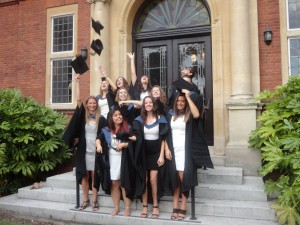











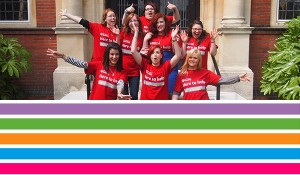

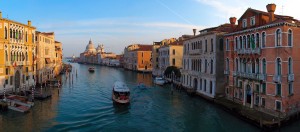


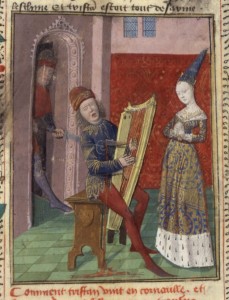
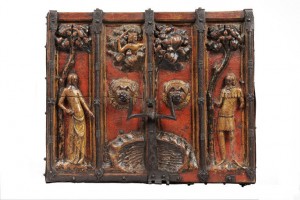


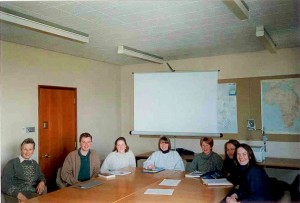
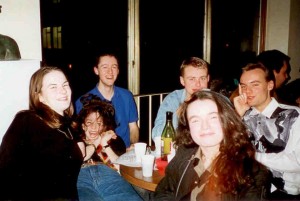

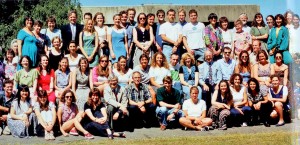
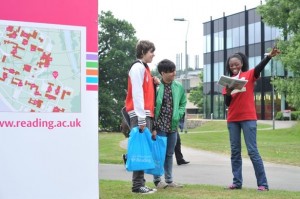 At
At 
